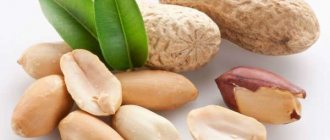Olive oil for the stomach is a universal remedy. Unlike medicines, it does not contain aggressive chemical compounds. Therefore, when conducting therapy at home, the development of negative side reactions is excluded. Olive oil is widely used to restore damaged gastric mucosa, improve digestion and peristalsis.
Olive oil is a universal remedy for restoring the mucous membranes of the stomach with ulcers and gastritis
Treatment of the stomach with olive oil
Olive oil has always been considered a remedy that can preserve a person’s health, youth and beauty until later in life. Additionally, this product is considered an excellent medicine. Almost 100% of the beneficial components contained in olive oil are absorbed by the human body.
You can treat gastritis with olive oil regardless of the level of gastric acidity
Olive oil has an active choleretic effect. It also acts as a fairly strong laxative. You can treat gastritis with olive oil, regardless of the level of gastric acidity.
In this case, the product has the following effect:
- envelops the walls of the organ;
- eliminates severe pain and discomfort;
- accelerates recovery and heals mucous membranes;
- relieves heartburn.
For treatment, the oil can only be taken fresh. The rule of administration is to use the product 1 spoon 3 times a day. It should be taken half an hour before meals. It is advisable to absorb the oil for a long time, and not just swallow it. Resorption time should be 10-25 minutes.
Typically, therapy for gastritis with olive oil should last about 1-2 months. In this case, relief occurs within 2 weeks. Pain, heartburn and heaviness in the stomach go away. Your metabolism also becomes healthier.
Taking oil as a treatment not only leads to improvement, but also helps to establish long-term remission. In this case, gastritis may not return for many months, or even years. It is worth considering that complicated forms of gastritis cannot be cured only with folk remedies. To treat such conditions, you need to go to the clinic.
Basic properties
Olive oil has a multidirectional effect on the body, normalizing the functioning of several systems at once, these are:
- The cardiovascular system. The product is rich in monounsaturated fatty acids, which normalize the ratio of lipids in the blood plasma, reducing the amount of “harmful” types of cholesterol.
- Digestion. Has a protective, choleretic, anti-inflammatory, healing, laxative effect.
- Immunity and protection against bacteria. Activates the body's defense against pathogens, mobilizes protective functions.
- Blood coagulation system. Olive prevents bleeding and strengthens the vascular wall thanks to vitamin K.
- Musculoskeletal system. Improves calcium absorption due to vitamins D and K.
Olive oil regulates metabolic processes due to the content of vitamins and minerals (iron, phosphorus, vitamins A, C, E, K), and is also widely used in cosmetology to improve the condition of skin and hair.
It is not recommended to use oil for cholecystitis, hepatitis, cholelithiasis, diarrhea, acute pancreatitis and the development of an allergic reaction.
Watch a fragment of a popular health program and find out how the unique qualities of the product help fight various diseases.
Olive oil may not be the healthiest option, but it is undeniable that it is the safest. The quality is preserved when frying, and has a therapeutic effect in acute forms of gastritis and chronic pancreatitis. Other oils cannot boast of such abilities. Olive oil can be safely taken for any type of gastritis, without forgetting about drug therapy and the need to follow a diet.
Today, olive oil is inexpensive and is found in almost every kitchen. This is a very healthy food product that combines taste characteristics with great benefits. The oil is completely absorbed and has a beneficial effect on the body. It has a lot of wonderful properties:
- rejuvenating effect;
- prevention of vascular and heart diseases;
- promotes the removal of cholesterol;
- An excellent remedy for the treatment of the gastrointestinal tract.
The usefulness of this dietary product is due to the vitamins of groups A, K, E, D, which it contains. In addition, olive oil contains linolenic and oleic acids - these are also valuable components. The product is also rich in phosphorus and iron. Thanks to its unique qualities, olive oil can:
- Help normalize digestive processes.
- Boost immunity.
- Accelerate skin regeneration (wounds heal faster).
- Protect the gastric mucosa from the formation of ulcers.
- Help prevent cancer of the digestive system.
- Eliminate painful heartburn.
- Help the flow of bile.
- Reduce the risk of obesity.
It seems that the beneficial properties of this product can be listed endlessly. It is not surprising that the treatment of gastritis with olive oil is also practiced. This disease has already become an integral part of modern life.
Lack of a balanced diet, snacks on the go and dry food, alcohol, cigarettes - these are the factors leading to inflammation of the gastric mucosa.
Scientists have proven that olive oil suppresses the activity of 8 types of Helicobacter pylori bacteria, 3 of which were resistant to antibacterial drugs, due to the presence of polyphenols (a type of antioxidant) in the composition. The oil also helped prevent re-infection.
Olive oil is used to ease any inflammatory process. These include gastritis. For people suffering from this disease, nutritionists create special diets, and olive oil is always included in it. Some substances present in products may irritate the mucous membranes. Olive oil helps protect the stomach from this attack.
Olive oil is suitable for the treatment of gastritis of any type, with low or high acidity.
Live healthy! Olive oil. Treasure of the Pyrenees.
Is it possible to use olive oil for gastritis?
Olive oil is a product widely used in the traditional treatment of diseases of the digestive tract. It contains many useful substances. Olives should not be eaten fresh. They can be consumed only after long soaking and canning, as a result of which many useful substances are lost. Therefore, it is more advisable to use oil for the treatment of gastritis, since it is a squeeze of fresh fruits that cannot be processed.
Olive oil can be used for gastritis. But it is important to know that when using it to treat gastric inflammation, the product must be made from the first pressing, and the purchased bottle must be stored in a cool place, protected from light.
Consuming olive oil for high acidity
The main role of olive oil in case of increased secretion is to protect the walls of the stomach from the effects of aggressive hydrochloric acid. Once inside, it gently envelops the mucous layer of the organ and stimulates regenerative processes in it.
For gastritis, olive oil is an essential component of dietary nutrition due to its properties and composition
But how to take this remedy? Taking olive oil should be regular and systematic - you need to drink it 30 minutes before meals, 15 ml, after taking a glass of water at room temperature.
To normalize acidity and eliminate heartburn, there is a recipe: take 10 g of propolis and pour 100 ml of oil, then put in a steam bath for 30 minutes. Next, cool the product and take 5 ml before meals, no more than 5 times a day.
Consuming olive oil for low acidity
When secretion is reduced, olive oil is used to stimulate the production of hydrochloric acid. For this purpose, it is used as follows: at the beginning of the therapeutic course, the oil is taken 5 ml daily before bed; after 14 days, the dose of olive oil is gradually increased to 15 ml; To stimulate the production of gastric juice before meals, before taking the oil, it is recommended to drink 200 ml of water with citric acid or juice.
To increase the production of hydrochloric acid, the following remedy is no less effective: mix 100 ml of honey, lemon juice, 250 ml of olive oil and leave for an hour at room temperature. Take the medicine in an amount of 5 ml half an hour before meals.
A little history
Olive culture has gained wide popularity for a long time. Being widespread throughout the Mediterranean Sea, the olive tree even became a symbol of Greece, and was found by archaeologists during excavations on the island. Santorini's oldest tree is almost 40 thousand years old.
However, it is unlikely that such a gastrointestinal tract pathology as gastritis is a characteristic symptom only of recent decades - our distant ancestors probably also suffered from it. They determined whether olives were good for gastritis experimentally, eventually realizing that it was olive oil that showed the best effect. It is known that they learned to produce this product about 7 thousand years ago, and many legends and myths are associated with the olive tree in Ancient Greece. This product was also revered in Ancient Egypt (the Egyptians considered the olive tree a gift from the goddess of motherhood and femininity Isis), in the Kingdom of Israel, and in Christian culture.
Olive oil for the treatment of gastritis
Before you begin treating gastritis with olive oil, you need to figure out which products will have a truly noticeable effect and which type of product will provide the maximum benefit to the body. The main parameter for assessing the usefulness of an olive product is its acidity.
The most suitable oil for treatment is an oil whose acidity does not exceed 0.5%, i.e. e. – not refined. This is exactly the percentage it has after the first cold pressing, and is designated on the label as “Extra Virgin”. During this technology, the product is not exposed to thermal effects and helps manufacturers, during the processing of raw materials, to preserve useful substances and properties as much as possible.
Buyers for the treatment of gastritis should choose unrefined oil labeled Extra Virgin
To treat gastritis, doctors do not recommend using refined mala, which has high acidity and was originally intended for frying and salad dressing. If you have gastritis of any complexity, it is necessary to use oils of only high-quality varieties and in raw form. It is recommended to consume the product three times a day, on an empty stomach, 30 minutes before meals.
Treatment should be continued for 2 to 3 months, even despite significant improvements after two weeks of use. If a person, for any reason or reason, cannot take the oil in its pure form, it is worth adding it to ready-made dishes (porridge, salads). Olive oil, even when used in this way, will have an enveloping, regenerating and antiseptic effect on the stomach.
Proper treatment of the disease with olive oil eliminates not only the symptoms of gastritis, but also leads to stable remission. Sometimes gastritis is accompanied by an extremely unpleasant symptom, such as constipation. In this case, the same aforementioned product – olive oil – will come to the rescue. To get rid of fecal stones, it is recommended to do an enema, mixing the yolk of one egg and warm water with olive oil.
To achieve a slight laxative effect after waking up, you should drink a spoonful of olive oil with warm water, slightly acidified with a few drops of lemon juice. Then you need to lie down quietly for 15 minutes.
Contraindications
Each oil can have a specific effect and affect each person differently. The following general contraindications include:
- Individual intolerance to oil components.
- Pregnancy and lactation period.
- Children's age up to 12 years.
- Pancreatitis, cholecystitis and other acute diseases of the intestinal tract.
- Neoplasms, thyroid diseases, diabetes.
Treatment with oils should be carried out only after consultation with a specialist. Only after this, the doctor will be able to determine an adequate treatment regimen, taking into account your individual characteristics and diseases of other areas.
Olive oil for the treatment of gastritis of the stomach
For gastritis, olive oil is an essential component of dietary nutrition, due to its properties and composition. For an inflamed stomach, doctors recommend replacing regular vegetable oil with olive oil, since the product is much easier to digest. It is not capable of provoking an exacerbation of the disease. Olive oil will be allowed to be included in the patient’s diet both for gastritis with high acidity and with low acidity.
The maximum effect when treating gastritis with olive oil can be obtained by consuming it in its pure form. How to take olive oil if you have diagnosed gastritis? For medicinal purposes, only fresh product should be used. You need to drink it on an empty stomach (in the morning) 1 tablespoon for gastritis with any type of acidity - high or low.
For gastritis, olive oil is an essential component of dietary nutrition due to its properties and composition
In case of a severe disease, the dosage can be increased: during the day you need to drink 1 tablespoon before all main meals. The oil will be useful for the erosive form, since its components accelerate the healing of damaged areas of the mucosa and prevent the formation of new areas of ulceration.
Improvement in general well-being occurs after approximately two weeks of regular use. The recommended course duration is 2 calendar months. If you consume the product on an empty stomach (in the morning after waking up), you must first drink a glass of water at room temperature.
This will help “start” the work of the stomach. The oil should be taken after 30 minutes and after the same time you can start breakfast. Many patients are unable to take olive oil in its pure form. The reason may be a specific smell and taste. In this case, it is recommended to use the product as an additive to the dish. They can be used to season porridges, purees, and salads.
Erosive gastritis and its treatment with olive oil
The maximum effect when treating gastritis with olive oil can be obtained by consuming it in its pure form.
Erosive gastritis is the most common. The reasons for it are well known to everyone. These are poor nutrition, abuse of alcohol and soda, coffee, smoking and stress. As a result, the mucous membranes of the stomach become inflamed. In the case of erosive gastritis, high acidity (an increase in the content of hydrochloric acid in gastric juice) may cause heartburn, and in the absence of proper treatment, the appearance of an ulcer is inevitable.
However, low acidity is no less dangerous, since in this case advanced gastritis is a direct path to stomach cancer. Thus, it is very important to start treatment on time, including at home.
How will olive oil help with erosive gastritis? As already mentioned, it perfectly relieves inflammation and will certainly help heal erosions. It is best to prepare it yourself - to do this, mix sea buckthorn juice and olive oil in equal proportions (five tablespoons each), leave for three days. Then take a teaspoon orally in the morning (necessarily on an empty stomach). Treatment should be carried out for at least two weeks.
Action against high acidity and various forms of disease
This product is effective for any type of gastritis. With reduced or normal acidity of gastric juice, olive oil gently envelops the stomach, removing inflammation from its mucous membrane and preventing its irritation by aggressive food agents.
With hyperacid gastritis, the use of oil significantly reduces the pain syndrome, since hydrochloric acid does not pass through the oil film and does not corrode the walls of the stomach. It is especially important for this form of gastritis to purchase a product with low acidity (0.5-0.8%).
In the case of erosive gastritis, not only the enveloping effect of the product is important, but also its ability to accelerate wound healing. Erosion with regular use of olive oil heals much faster. True, this happens if you consume the oil on an empty stomach.
The thin and sensitive mucous membrane of the stomach with atrophic gastritis is very easily injured, and with a protracted course of the disease it can degenerate into malignant neoplasms.
Olive oil protects the mucous membrane from damage and reduces the risk of developing cancer due to its antioxidant activity.
This is practically the only oil that is approved for use in the acute phase of gastritis, since it stimulates the gastrointestinal tract and enhances the production of digestive enzymes to a lesser extent than its “brothers”. For the same reason, its use is also allowed for chronic pancreatitis.
The prescription regimen for olive oil is the same for all types of stomach inflammation: drink 1 tablespoon three times a day before meals. The duration of therapy is 1-4 months.
How to use olive oil to treat gastritis
For a sick stomach, drinking olive oil 30 minutes before meals, one tablespoon three times a day, is very effective. At the same time, you don’t have to be afraid of any consequences, as is possible in the case of consuming sunflower oil, which can cause hepatic colic.
In addition, olive oil can be consumed by people with both decreased and increased secretory function. And it can also have a beneficial effect on intestinal activity, improve the functioning of the liver and pancreas, and accelerate the healing process of ulcers in the duodenum or stomach. In the morning, before taking olive oil, it is very useful to drink at least a sip of plain water without carbon. This will help prepare both the stomach and other organs of the digestive system for work.
For a sick stomach, drinking olive oil 30 minutes before meals, one tablespoon three times a day, is very effective.
Treatment is recommended only with fresh olive oil. At the same time, it should not be bitter or have sediment. It is advisable that at the time of its purchase, the shelf life of the oil does not exceed more than one month from the date of production.
In general, during treatment, a two-month course of taking the oil is recommended to achieve the effect. As practice shows, improvement can occur in the first couple of weeks, but this does not mean that treatment can be completed. On the contrary, in order to avoid relapses, olive oil should be used before the expiration of the specified period. And after a short break, repeat the course of treatment again for two months.
Sometimes inflammation of the gastric mucosa can be accompanied by such an unpleasant phenomenon as constipation. And this is where the above-mentioned product comes to the rescue. To get rid of constipation and fecal stones, you will need to do an enema by mixing the same olive oil, egg yolk and warm water.
To achieve a slight laxative effect in the morning, after taking one spoon of oil, you will need to drink a glass of boiled water (warm), slightly acidified with a few drops of lemon juice. Then you need to lie quietly for a while (about 15 minutes).
Before you begin treatment with olive oil, you need to figure out which of the several types of this product will bring maximum benefit to the body. Thus, the main parameter by which the usefulness of an oil is assessed is its acidity. For medicinal purposes, the best oil is with an acidity of less than 0.5%.
This property is possessed by the product obtained after the first cold pressing, unrefined oil. On the label, as a rule, a product in this category is designated as Extra Virgin. This technology allows you to preserve the maximum amount of useful substances as a result of the absence of thermal effects on raw materials during processing.
Is there a risk?
The usefulness of olive oil is assessed, among other things, by such criteria as acidity. For medicinal purposes, it is best to use a product with an acidity below 0.5%. This is unrefined oil obtained after the first cold pressing. Usually this category is indicated on the packaging as Extra Virgin.
For the treatment of gastritis, oil that is obtained from pressed products using the extraction method - cake oil - is not suitable. It is also worth avoiding the use of oils obtained through refining during the second extraction.
Oils that are quite suitable for frying or salad dressing are not suitable for treatment; The reason is quite high acidity.
It is extremely rare that the body reacts to olive oil with an allergy. However, before starting treatment, you need to make sure that the product is tolerable. It is also advisable to consult with your doctor.
Treatment should be delayed if you have an intestinal disorder. Olive oil should be used carefully in case of cholelithiasis: the secretion of bile will increase.
Treatment must be comprehensive. When using folk remedies, you should not give up drug therapy.
Correct use of sea buckthorn oil for gastritis
Patients who plan to take olive oil in the treatment of pathology should take into account one important point - for each form of gastritis, the product is used differently. If the patient has any complications or the disease is too advanced, he should consult a gastroenterologist before starting to take the oil.
How to use olive oil for gastritis with high or low acidity
For therapeutic and preventive measures, only natural and fresh “Extra Virgin” olives should be used. It is recommended to consume one tablespoon of the product daily. spoon in the morning, before meals. The oil can be used for erosive gastritis. The components present in the product very effectively combat erosive damage to the mucous membrane. The oil envelops the walls of the organ and promotes rapid wound healing.
If the patient has an acute form of pathology, then he can increase the daily dose of oil: you can drink a tablespoon 3 times a day before meals. Experts recommend a course of treatment for 60 days, without breaks.
The oil can be used for erosive gastritis; the components present in the product are very effective in combating erosive damage to the mucous membrane
After starting to take olive oil, patients will feel relief within 14 days. If the patient takes it on an empty stomach, he should first drink a glass of boiled water. The liquid entering the stomach will only enhance the effect of this healing product.
Before starting treatment, you should make sure that the oil is suitable for use. To do this, just check its expiration date, which manufacturers indicate on the label. You can also taste it. If the patient feels bitterness, then this “Extra Virgin” olive should not be used for medicinal purposes.
If gastritis is accompanied by prolonged constipation, the patient can do a cleansing enema using this product. The solution can be prepared as follows: mix olive oil, egg yolk and warm water in a glass jar.
After using the oil in the morning, it is recommended to lie on the bed and remain in a horizontal position for 15 minutes. If the patient cannot consume Extra Virgin Olive in its pure form, he should use it in the required dosage as a salad dressing. Regular use of this product allows patients to enter a state of stable remission.
When you just start using sea buckthorn oil for gastritis with high acidity, heartburn may worsen
Before starting to use olive oil for acute or chronic gastritis, patients should ask their gastroenterologist how to choose the right product. They can achieve the desired results by using oil whose acid level does not exceed 0.5%. Manufacturers usually note this point on the label. Buyers should choose unrefined oil labeled "Extra Virgin".
Features of treating gastritis with sea buckthorn oil
It is important to note one more nuance. When you just start consuming sea buckthorn oil (for gastritis with high acidity), heartburn may worsen. Some get scared and interrupt the course of treatment. This should not be done, as over time this reaction will weaken and disappear altogether.
A 2% soda solution will help to alleviate the condition at first - you should drink a quarter glass of this liquid before taking sea buckthorn oil. In addition, do not forget that during the treatment period (and in general for gastritis), you must completely forget about alcohol and smoking, otherwise you will have to wait a very long time for results (if any).
Sources:
- https://gastrit.guru/narodnye-sredstva/olivkovoe-maslo-pri-gastrite.html
- https://mi-msk.ru/eda/raznoe/olivkovoe-maslo-pri-gastrite.html
- https://vnorg.ru/zheludok/gastrit/022-olivkovoe-maslo-pri-gastrite.html
- https://ozheludke.ru/gastrit/olivkovoe-maslo-pri-gastrite.html
- https://ogastrite.ru/lechenie-gastrita/olivkovoe-maslo-pri-gastrite-pravila-priema-prodolzhitelnost-lecheniya/
- https://netuyazvi.ru/gastrit/olivkovoe-maslo.html
- https://fb.ru/article/133210/oblepihovoe-maslo-pri-gastrite—pervaya-pomosch-ot-prirodyi
Post Views: 1,160
Advice from gastroenterologists
There are a number of general recommendations that should be considered when treating gastritis with olive oil:
- More doesn't mean better. Exceeding recommended dosages for a long time, you can become the owner of hypervitaminosis, liver disease, and disorders of the nervous system. In addition, there is a risk of gaining excess weight due to the high calorie content of the product - 852 kcal per 100 g.
- For medicinal purposes, it is advisable to use a first-pressed oil solution - extra virgin. It has the least acidity and the highest nutrient content.
- When calculating the required dose, take into account the oil dressing for the food.
- If diarrhea develops, you should not immediately remove the product from your diet; you can try to reduce the daily dose.
- There is no need to stop treatment as soon as you feel better. To obtain a lasting effect, the product must be taken for at least 3-4 weeks.
- The oil solution is also prescribed for the prevention of gastritis, 1 tbsp. l. once a day, on an empty stomach.
Composition and benefits of olives
The miraculous properties of the fruits of the olive tree have been known since ancient times. Avicenna also considered them the best cure for all diseases.
Modern research has confirmed that regular consumption of olives:
- increases the body's immune strength;
- slows down the aging process;
- protects the gastric mucosa from ulcers;
- normalizes digestion processes;
- is an effective means of preventing cancer.
The beneficial properties of olive fruits are determined by their chemical composition.
They contain a large number of substances valuable for the human body:
- vitamins C, E, K, PP, F, group B;
- provitamin A;
- macroelements: phosphorus, potassium, sodium, magnesium, calcium;
- microminerals: iron, copper, selenium, zinc, manganese;
- phenols (oleocanthals);
- fiber;
- essential amino acids: arginine, valine, isoleucine, lysine and others (9 out of 20 necessary for a person to function normally).
The chemical composition of fruits may vary slightly depending on the variety, place of growth, degree of ripeness, and processing method.
The peculiarity of olives is that they cannot be eaten fresh - even ripe fruits (black olives) are so hard and bitter that they must be soaked for several months and then preserved to make them edible.
Many beneficial substances are lost during processing. Maximum health benefits can be obtained from the product of fresh fruit pressing - extra virgin olive oil.
Reviews
In most situations, reviews of oils for the treatment of stomach and duodenal ulcers are positive. People point out that there is nothing complicated in the treatment, and the effect is immediate.
Maria, 39 years old:
Our whole family has ulcers. As the doctor told us, there is a certain bacterium (Helicobacter, it seems) that is transmitted. For the time being, it is not active, but when conditions arise, it becomes active. In my case, the acidity in the stomach was elevated, and it contributed to the appearance of an ulcer. The doctor prescribed treatment and recommended using sea buckthorn oil. I'm happy with the result. I did not experience any side effects from using the oil.
Evgeniy, 24 years old:
Since I was a teenager, they found that I had an ulcer. I was treated, the symptoms seemed to go away, but a sick stomach is a lifelong problem. My mother is a lover of all kinds of folk recipes. She made me eat more butter and gave me sea buckthorn oil daily. To my surprise, I felt much better, the pain was not so pronounced, and my general condition improved.
Source: ogkt.ru











